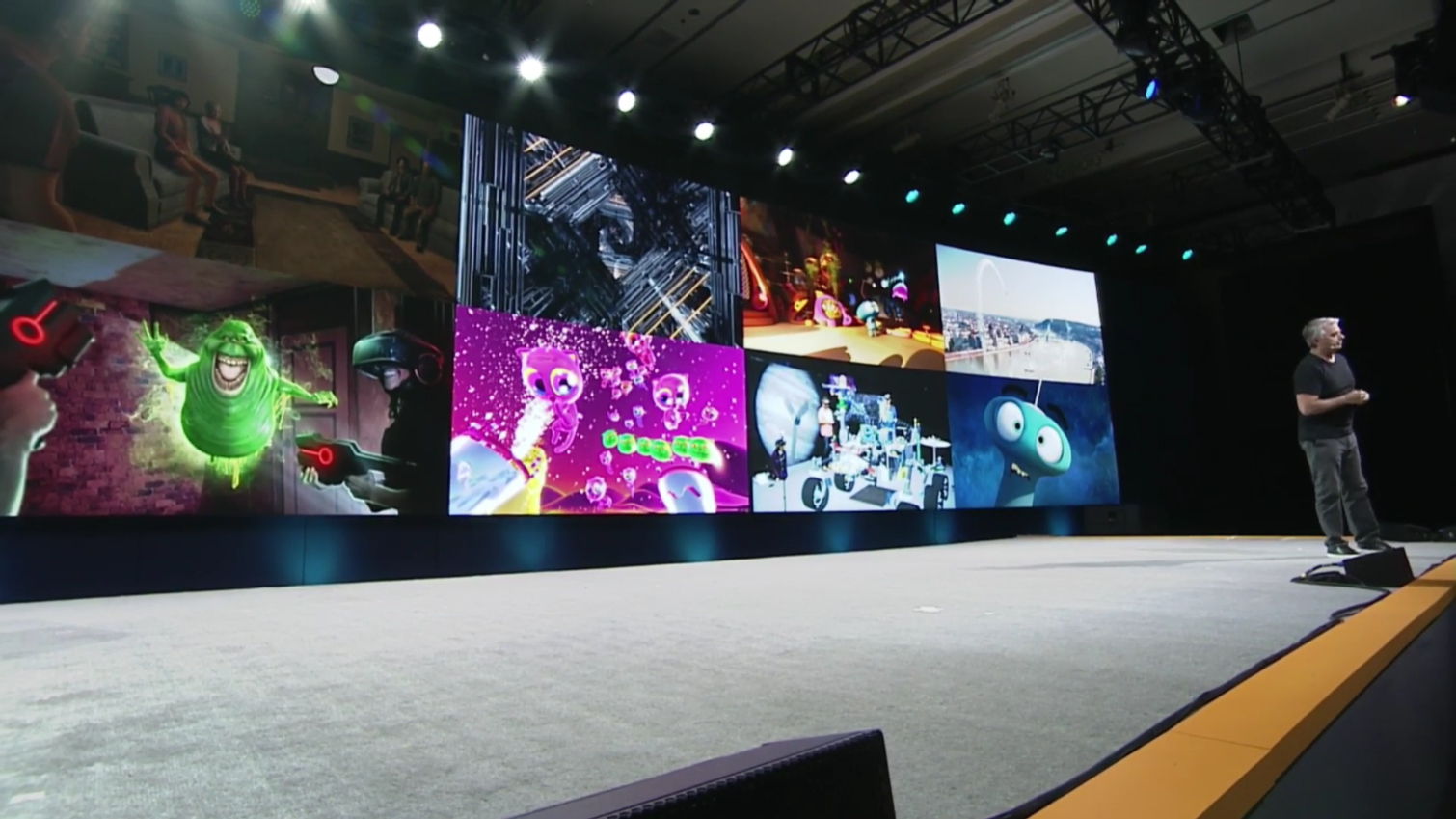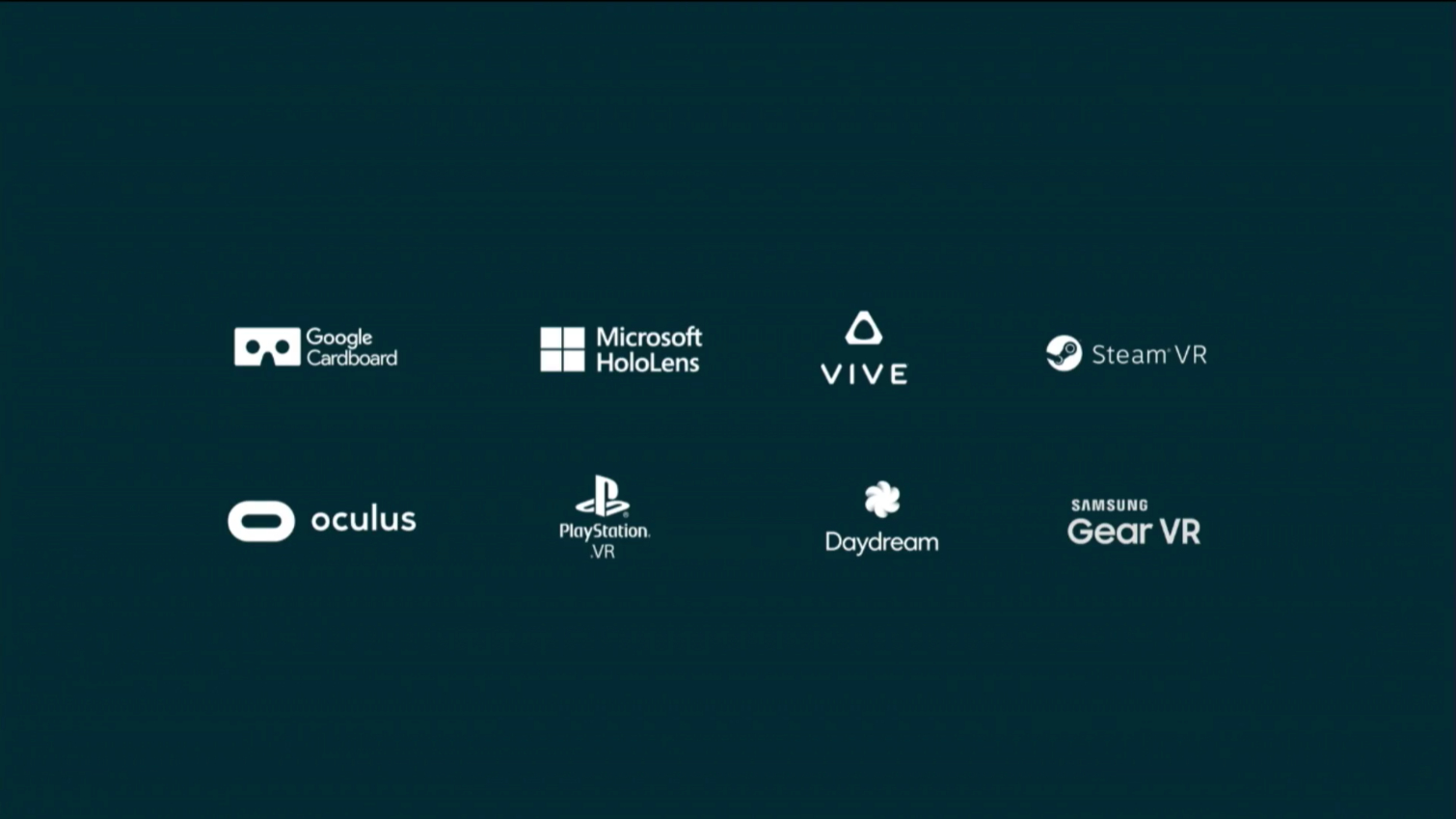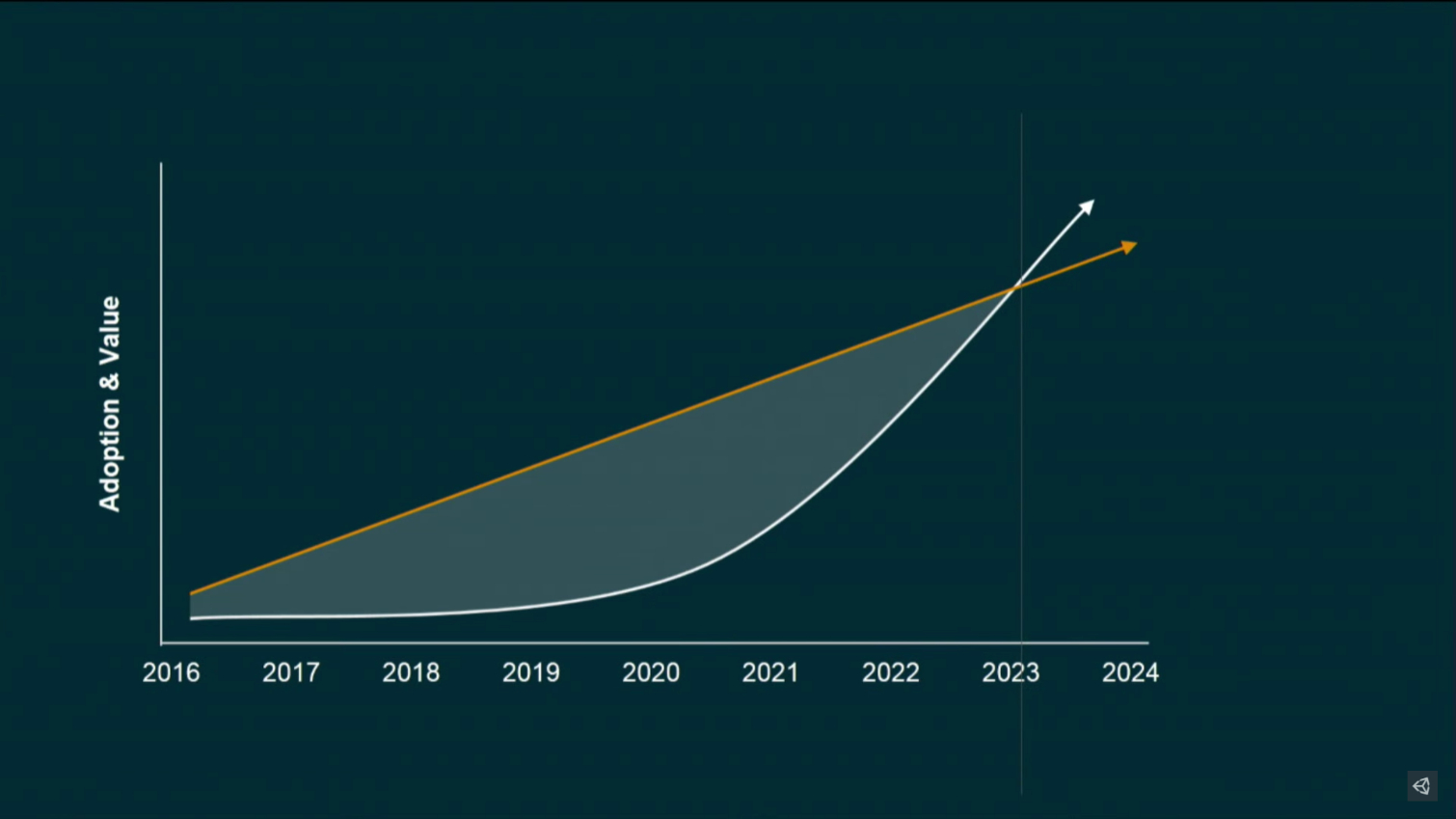Unity CEO Believes The VR, AR Industry Could Become ‘Bigger Than Everything’
Unity CEO John Riccitiello started the opening keynote for the Vision AR/VR Summit 2017 with his thoughts on the future of immersive technology. He believes that the immersive technology industry will ultimately grow larger than we imagine and that we’ll see a new crop of software giants, in the vein of Activision and Electronic Arts, that emerge as the industry grows.
Bullish About The Future
It should come as no surprise that Riccitiello is a big believer in virtual reality and augmented reality technologies. Unity embraced VR in the earliest days of Oculus and quickly became a pioneer in this emerging industry, and Riccitiello expects that to continue for many years to come. Many people who believe that VR and AR will amount to something also believe the immersive technology industry will grow into a massive market. Riccitiello is among them, but he takes it a step further, stating that the immersive technology industry will ultimately become “bigger than everything.”
Riccitiello thinks that people are missing the bigger picture about the ramifications of immersive technology creeping into our everyday lives. He sees these early days of VR and AR as a parallel to the early days of the internet. Analysts were buzzing about the short-term potential of an interconnected computer network, but no one could predict how integral the internet would eventually become to our economy. These days, a huge number of financial transactions occur over an internet connection; Riccitiello envisions a similar future for immersive technology. As the hardware technology advances, so will the software experiences, and over a long period, people will integrate these technologies into their everyday lives.
Three Key Challenges
There are several hurdles to get past before immersive technology can truly break into mass adoption, though. Riccitiello identified three key factors that could hold the immersive technology industry back.
First, he believes that a sub-$1,000 price point for the computer, HMD, and controllers is paramount to the success of XR. He said that he knows industry leaders want that to happen and that they “will make that happen.”
The second factor is mobility. By and large, people don’t want to be strapped to a computer. Mobility for VR and AR HMDs is a must for many people. We’ve seen glimpses of self-contained, untethered VR HMDs with inside out tracking, so we know the technology is coming down the pipeline. Riccitiello suggested that we’ll see these kinds of devices hit the market by 2018 and into early 2019.
Content is the third key component, according to Riccitiello. This he believes will emerge naturally. He suggested that many people believe that the giant corporations with access to famous franchises have all the advantages in a new industry like this, but he disagrees. Riccitiello pointed to the examplars of the console and mobile gaming industries to illustrate that new software giants emerge as a result of new hardware platforms, and there’s no reason to believe that won’t happen again.
Get Tom's Hardware's best news and in-depth reviews, straight to your inbox.
Electronic Arts, Blizzard, Activision, and Ubisoft didn’t exist before the hardware platforms existed for their games. King and Supercell, two giants of mobile gaming, didn’t exist before Apple created the iPhone and kickstarted the smartphone generation. These companies reacted to the opportunity that the hardware companies created for them. The VR and AR industry is the same way. Companies like Oculus (Facebook), Vive (HTC), Samsung, and Google have invested fortunes into creating hardware platforms that create opportunities for the next software giants to emerge. It’s up to enterprising software developers to capitalize on that opportunity.
Realistic Outlook
Despite his exuberant attitude towards the coming immersive technology revolution, Riccitiello gave a word of warning to the prospective developers in the audience. The future is bright, but we’re not quite there yet. A large investment into software for VR and AR could pay off in the long run, but you’ll likely need a 100,000,000-HMD install base to sell enough software to become the next EA or Activision. And we’re a long way off from that number.
The future of immersive technology is bright, but keep in mind that we’re still talking about the future, after all. First-generation VR hardware is attracting gamers and technology buffs, but the next software giant won’t emerge until the immersive technology is in the hands of the average person.
Ubiquity
Ultimately, the next video game giant is just a drop in the bucket of what Riccitiello sees for the future. He believes that immersive technology will touch all aspects of our daily lives, and relatively soon, and that ultimately the immersive technology industry will grow larger than any industry to date. Just like the internet, which grew from a novelty to an intrinsic part of our society and economy in less than three decades, immersive technology will become an inherent part of your day. It’s just a matter of time.
Kevin Carbotte is a contributing writer for Tom's Hardware who primarily covers VR and AR hardware. He has been writing for us for more than four years.
-
bit_user Reply
Don't worry, by the time AI can do that, it'll be smart enough to realize that humans make terrible batteries.19640029 said:It's all fun and games until AI turns me into a battery...



